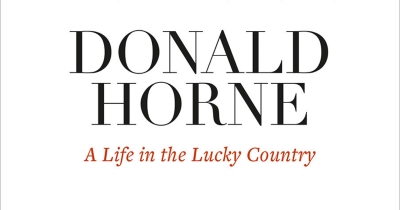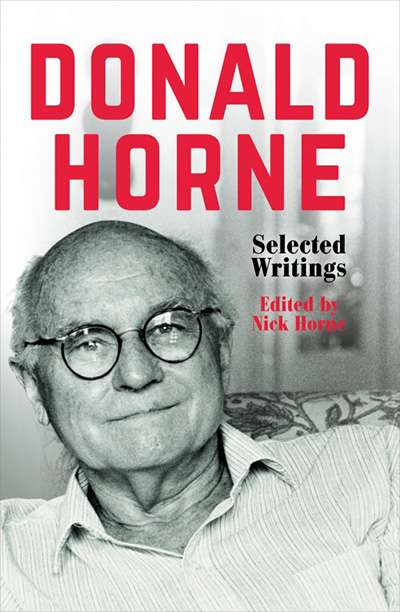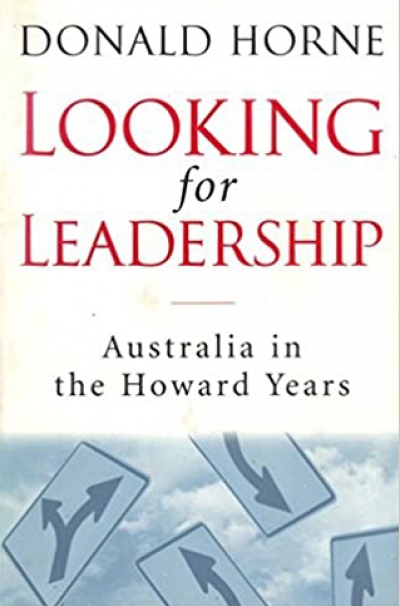Donald Horne
Griffith Review 28: Still the Lucky Country? edited by Julianne Schultz
Dying: A memoir by Donald Horne and Myfanwy Horne
Looking for Leadership: Australia in the Howard Years by Donald Horne
The Frank Hardy I Knew
Dear Editor,
Frank Hardy was a larrikin. It was probably one of his most endearing qualities, but he did tell me once that his membership of the Australian Communist Party enabled him to become something more than a larrikin. He didn’t always pay his debts, except for the one big debt and the only one worth remembering: the debt of living, to the end, a writer’s life. For a boy brought up amongst working-class Irish Catholics in the potato belt in Victoria, that was no mean feat.
... (read more)Donald Horne: critics and negotiators
The general idea of ‘public intellectual life’ is more useful than the particular idea of’ the public intellectual’. ‘Public intellectual life’ is a public manifestation of what I called in The Public Culture ‘the critics’ culture’ of a liberal-democratic state. (It is made possible by the belief in a questioning approach to existence as a central force in society.) However only parts of this critical activity emerge into the public culture; it is these parts that might be thought of as its ‘public intellectual life’. They provide a kind of public acclimatisation society for new ideas. All kinds of people may play a part in working up these ideas down there in the subterranean passages of the critics’ culture and others may take over the business of negotiating them into the public sphere. Many of these ‘negotiators’ are paid public performers in the news and entertainment industries. However some of the ‘critics’ also have a capacity to barge in directly – but only if they have a desire to appeal to people’s imaginations, and the talent to do so. These are the ‘public intellectuals’. Some of them may be one-offs. Some become regulars. They become influential if they articulate ideas that are already in the minds of some of ‘the public’ anyway, if in a more diffuse state. They get nowhere if they don’t. Two of my books, The Lucky Country and Death of the Lucky Country, were prime examples of appealing to interests of which readers were already becoming aware.
... (read more)I’ve told this story before, but perhaps I might give it one last run ... There I was at a NSW Premier’s Literary Award dinner, giving the annual address and I wanted to say, in passing, that much verse and most fiction, like most of anything else, are more likely to be products of imitation than of imagination. On the other hand, essays, history, philosophy, prose sketches, social, political and cultural analysis, popularisations of specialist scholarly stuff and all kinds of criticism can at times be more imaginative than verse or fiction – and display greater literary qualities.
... (read more)






